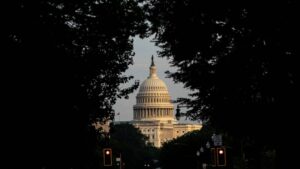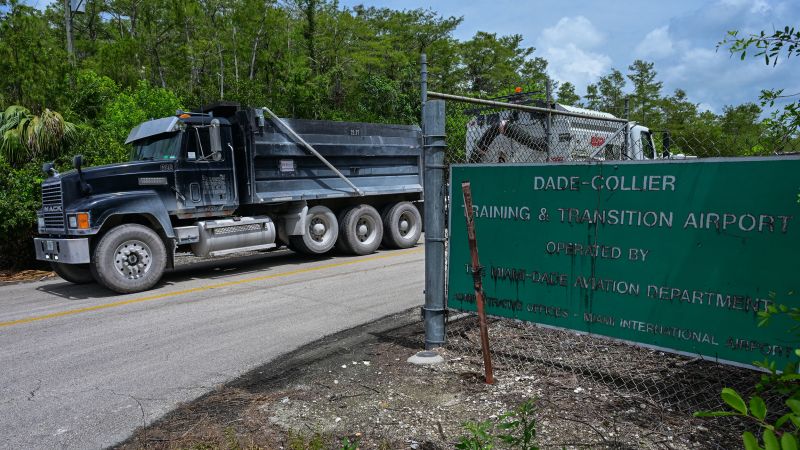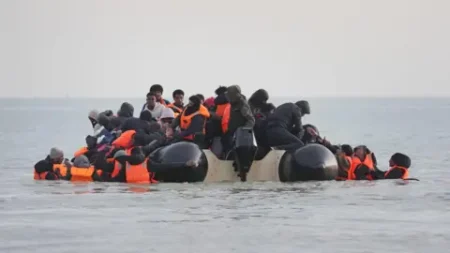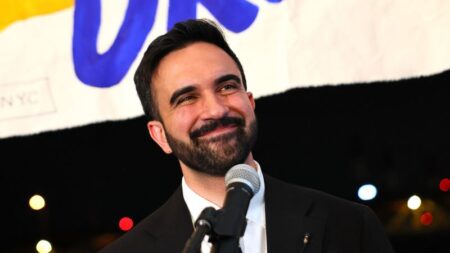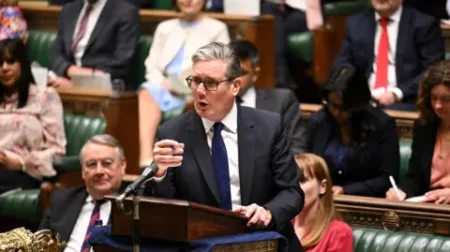The political landscape in Florida has dramatically shifted, especially following the recent decision for President Donald Trump and Governor Ron DeSantis to appear together at the opening of a new migrant detention facility in the state’s Everglades. After months during which Trump’s administration subtly attempted to diminish DeSantis’s hardline immigration mandates, the two Republican figures are aligning themselves once again, setting the stage for this significant event.
The site, informally referred to as “Alligator Alcatraz,” is positioned on a remote airstrip encircled by Florida’s famous swamplands. This facility represents a key element of Trump’s immigration agenda, and DeSantis has activated emergency powers to expedite its construction, receiving explicit backing from the Trump administration. This collaboration showcases DeSantis’s ongoing commitment to support a defining element of Trump’s policies, a characteristic that may bolster his standing within the Republican Party despite a complicated relationship.
The dynamic between Trump and DeSantis has grown more intricate since the latter announced his candidacy for the 2024 GOP nomination. There has been tension between the two, particularly as DeSantis’s campaign seemingly diminished Trump’s influence, which the former president deemed instrumental in the governor’s rise to prominence. The White House’s actions in recent months have further complicated matters—there has been a concerted effort to distance DeSantis by engaging Florida lawmakers and providing support to other Republican contenders, reinforcing concerns about DeSantis’s standing within his party.
The launch event for the detention center is anticipated to attract notable figures, including Representative Byron Donalds, who is viewed as Trump’s preferred successor for the governorship should DeSantis’s political agenda falter. This development adds another layer to the shifting allegiances within Florida’s political domain, where DeSantis has positioned his wife, Casey DeSantis, as a possible candidate to replace him. This internal rivalry highlights the ongoing struggle for influence and support within the Republican Party in Florida.
Despite the complexities of their relationship, both Trump and DeSantis have emphasized a cooperative effort towards achieving Trump’s objectives in immigration reform. Recently, as Trump traveled to Florida, he expressed optimism regarding the upcoming event, indicating the preparations that had been made collaboratively with DeSantis and his administration. Trump’s statement reinforced the urgent need for facilities like the one in the Everglades, where Florida has notably advanced its alignment with stricter immigration policies.
Legislation signed by DeSantis mandates that local law enforcement cooperate with federal immigration authorities, reinforcing the state’s role in Trump’s immigration initiatives. This aggressive stance has led to Florida being responsible for a considerable portion of agreements between Immigration and Customs Enforcement (ICE) and local agencies, indicating its commitment to deportation efforts. DeSantis has further described this new facility as a comprehensive solution, ensuring rapid processing and deportation of undocumented immigrants.
Adding to the narrative of shifting Republican loyalties, Trump’s border czar, Tom Homan, publicly commended DeSantis for the new facility’s development. Still, the governor has aimed higher, drafting legislation to grant himself unprecedented powers over immigration enforcement, a step met with resistance from Florida’s legislature, which ultimately opted for a more collaborative approach with federal authorities.
As the political environment of the Republican primary season intensifies, DeSantis has increasingly critiqued Trump’s past performance, particularly concerning key issues such as border security. This reproach highlights a potential rift in their alliance even as they prepare to publicly showcase cooperation in immigration initiatives.
As the two former rivals navigate complex political terrain, a façade of unity has been exhibited in public interactions, yet underlying tensions remain. Such dynamics will be crucial to observe as the 2024 election cycle continues to unfold in a state deeply influenced by the unique challenges of immigration and political loyalty.

